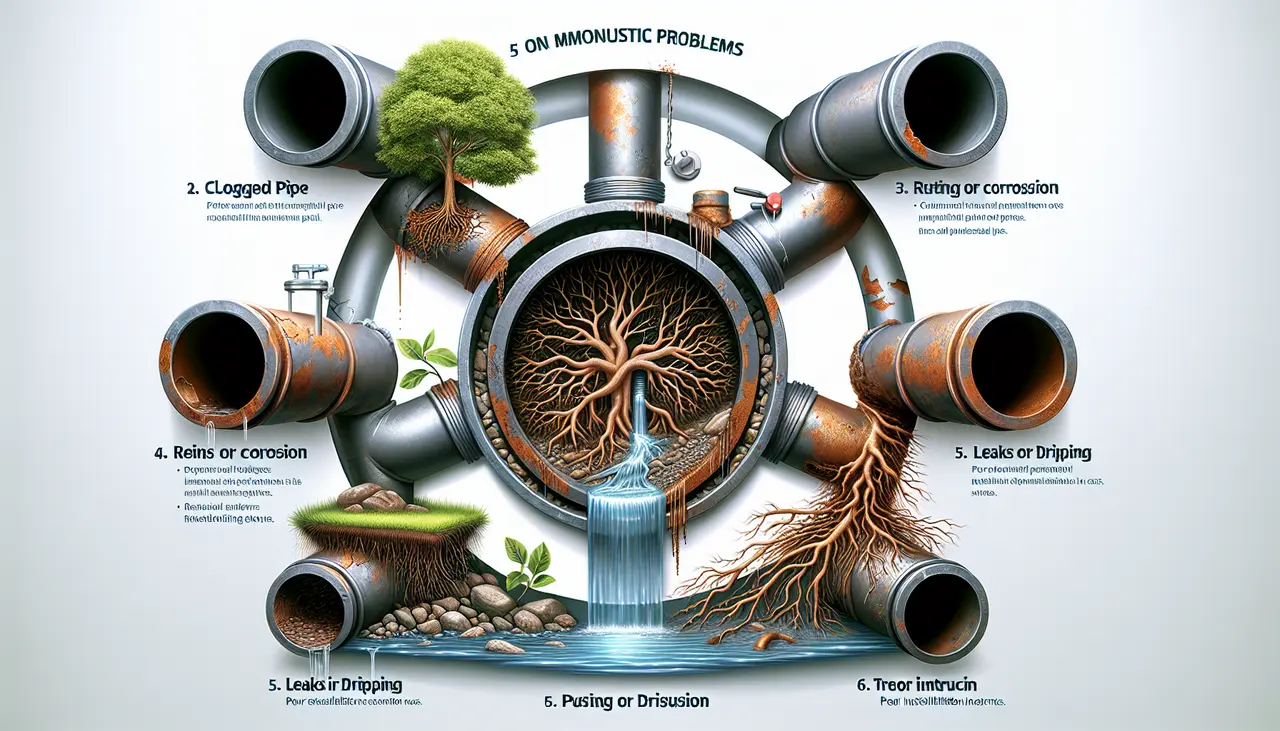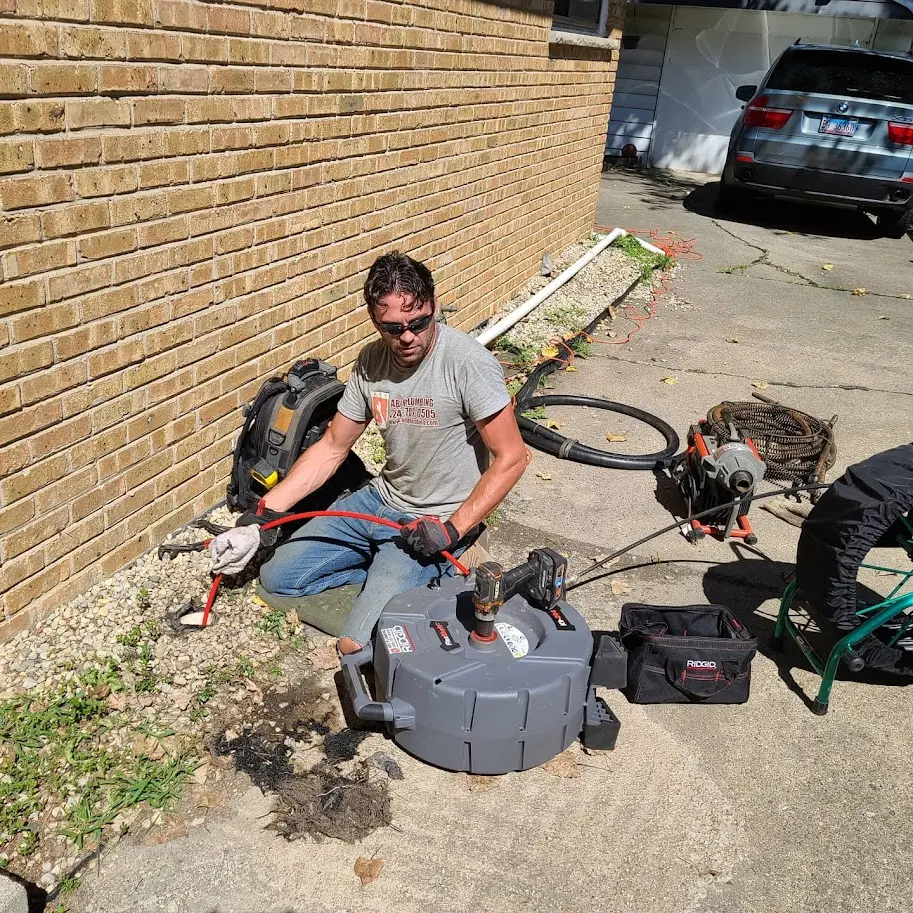Introduction to Common Drain Pipe Issues
Drain pipes, the unsung heroes of our homes, quietly carry away wastewater and keep our living spaces clean and dry. But when something goes wrong, it’s hard not to notice. From slow drains to outright blockages, the issues can range from mildly annoying to seriously problematic. Before we dive into specific troubles and their fixes, it’s crucial to understand that most drain pipe woes fall into a few common categories. These include clogs caused by hair, food waste, grease, and foreign objects, leaks from wear and tear or poor connections, and bad odors resulting from trapped debris and buildup. Tackling these issues promptly can prevent more severe problems down the line, saving you time, money, and the headache of major repairs. As we move forward, we’ll look at each of these problems in more detail and explore straightforward solutions to keep your drain pipes running smoothly. Remember, a little knowledge and some basic maintenance can go a long way in avoiding major plumbing disasters.
Clogging: The Primary Adversary of Drain Pipes
Clogging is your drain pipes’ number one enemy. It’s like the villain in every movie about your home’s plumbing system. When stuff you shouldn’t flush down the drain—think cooking grease, hair, and coffee grounds—meet your pipes, a clog sets up camp. This blockage can make water drain slower than a snail, or worse, not at all. Now, how do you beat this foe? First, a plunger can often dislodge whatever’s causing the jam. It’s your first line of defense. For tougher clogs, a drain snake or a mixture of baking soda and vinegar followed by hot water might do the trick. Remember, the best fight against clogs is prevention. Avoid flushing down clog-prone materials, and consider using drain guards to catch hair and other debris. That way, you keep water flowing and clogs at bay.
Leaks: Identifying and Addressing the Hidden Threat
Leaks in drain pipes can start small but turn into a homeowner’s nightmare if not tackled promptly. Spotting them early is key. Look for signs like unexpected water bills, musty smells, or mold patches on walls and ceilings. These are your clues something’s wrong behind the scenes. Fixing leaks ASAP stops bigger problems and saves water and money. For small leaks, a patch kit might do the trick. But if you’re not confident or it’s a big issue, calling a pro is your best bet. They can find hidden leaks and fix them right, keeping your home safe and dry. Remember, ignoring a leak won’t make it go away. Act fast to prevent damage.
Slow Drains: Understanding the Causes and Solutions
Slow drains are a headache, signaling buildup or blockages deep in your home’s plumbing. Before you call a plumber, know this — most slow drain issues stem from accumable gunk, hair, soap residue, and in some cases, small objects that shouldn’t be in your pipes. First, try a plunger. It’s not just for toilets; it can work wonders on a sluggish sink or shower drain. If that doesn’t do the trick, consider a drain snake. It’s a tool that reaches deep to snag and pull out whatever’s causing the block. For a less hands-on approach, there are chemical cleaners, but use them sparingly as they can damage pipes over time. Sometimes, baking soda followed by vinegar does an equally good job, plus it’s more eco-friendly. Remember, prevention is key — use sink strainers to catch debris and avoid pouring grease down the kitchen sink. If these DIY fixes don’t clear up the problem, it may be time to summon a professional.
Bad Odors: Tracing and Eliminating Sources
Bad odors from your drains can turn your cozy home into a not-so-pleasant place. The smells often come from decaying food particles, trapped grease, or buildup inside the pipes. Sometimes, it’s as simple as trapped hair and soap scum slowing down water and causing a stink. So, how do you tackle these nose-cringing odors? First, start with boiling water. Pouring it down the drain can dislodge some of the gunk and eliminate mild odors. If boiling water doesn’t cut it, mix up a solution of equal parts white vinegar and baking soda. This fizzing combo works wonders in breaking down the residue inside pipes. Pour the mixture down the drain, let it sit for about an hour, then flush with hot water. For tougher smells, it might be time to pull out the plumber’s snake or, as a last resort, call in the pros. Regular cleaning and mindful use of your drains can keep bad odors at bay, making your living space fresh once more.
Broken Pipes: Prevention and Repair Strategies
Broken pipes are a nightmare you want to avoid. The key to dealing with broken pipes is catching the problem early. Here’s how you can prevent and repair them without breaking a sweat. For prevention, keep an eye on your water pressure. High pressure can damage pipes over time. Installing a pressure regulator can save them from cracking. Also, during cold spells, insulate your pipes to prevent freezing and bursting. If a pipe still breaks, don’t panic. First, shut off the main water supply to stop the water flow. This move is crucial to prevent more damage. Then, assess the situation. For small cracks, a patch kit from your local hardware store might do the trick. These kits are easy to use and can hold you over until you get a professional fix. For big breaks, it’s best to call in a pro. They have the right tools and knowledge to repair it correctly, ensuring it’s up to code and won’t give you more trouble down the road. Remember, acting fast and keeping calm can make a huge difference in managing broken pipes.
DIY Fixes for Common Drain Pipe Problems
Dealing with drain pipe problems doesn’t always mean calling a plumber. Some issues you can tackle yourself. Here’s how:
- Clogs: The most common drain pipe problem. Use a plunger first. If that doesn’t work, try a drain snake to break up the blockage. Avoid chemical cleaners as they can damage pipes over time.
- Slow Drains: Often a sign of buildup. Boil water and pour it down the drain to help clear grease and soap scum. For tougher buildup, a mixture of vinegar and baking soda can work wonders. Let it fizz in the drain, then flush with hot water.
- Odors: Bad smells mean trapped food or debris. Clean the drain with baking soda and vinegar, followed by hot water. This usually eliminates odors by clearing out the gunk causing them.
- Leaks: Tighten connections or replace worn-out washers if visible. For hidden leaks, you might need to carefully expose the pipe and apply plumbing tape or replace a section of pipe.
- Noisy Pipes: Often due to trapped air or loose support straps. Secure pipes with additional strapping or use a plumber’s tape to reduce vibrations.
Remember, prevention is key. Regularly clean drains and avoid dumping oil, coffee grounds, or food scraps down them. DIY fixes are great for minor issues, but for major problems, it’s wise to consult a professional.
When to Call a Professional Plumber
Sometimes, no matter how handy you are, it’s best to call a professional plumber. Here’s when you should pick up the phone: if you’re dealing with persistent clogs that just won’t clear, if there’s water where it shouldn’t be (think leaks or floods), if you smell gas (that’s a big one – gas leaks are dangerous and need an expert touch), if you’re trying out major repairs or installations (don’t play with pipes if you’re not 100% sure), and if your water pressure is all over the place. These issues can escalate quickly and cost you more if not handled correctly. A pro has the tools, the know-how, and the experience to fix it fast and fix it right. Also, messing with plumbing without the proper know-how can lead to bigger problems, which translates to spending more money than you would have by calling a pro in the first place. So, when in doubt, it’s worth getting an expert in.
Preventative Measures to Keep Your Drain Pipes Clear
Keeping your drain pipes clear isn’t just about dealing with problems after they occur. It’s about stopping those issues before they start. Here’s the lowdown on keeping those pipes flowing freely. First off, be mindful about what goes down the drain. Grease, coffee grounds, and large food particles are a big no-no. They’re like the main villains in the story of your drain pipes, ready to clog and cause havoc. Instead, throw them in the trash. Another hero move is to use drain strainers. These little gadgets catch hair and other debris, stopping them from entering your drains. Just make sure to clean them regularly. Now, don’t underestimate the power of hot water. Pouring hot water down your drains weekly helps dissolve fatty acids and keeps things moving. But here’s a trick – don’t just use hot water. Every once in a while, mix in a bit of baking soda and vinegar before the hot water. This combo does wonders for clearing potential clogs. Lastly, consider bi-monthly maintenance with enzyme-based cleaners. These are kind to your pipes and the environment, breaking down organic matter without the harsh chemicals. Remember, a little prevention goes a long way in keeping your drain pipes clear and functional.
Conclusion: Maintaining Healthy Drain Pipes
Keeping your drain pipes in good shape doesn’t need to be a big mystery or a massive headache. Here’s the deal: avoid throwing things down the drain that shouldn’t be there—like oils, coffee grounds, and hair. Install strainers in sinks and showers to catch stuff before it causes a block. Every once in a while, flush your pipes with hot water or a mixture of vinegar and baking soda to break down any buildup. If something does go wrong, remember, many issues can be sorted out with a plunger, a plumber’s snake, or over-the-counter drain cleaners. But for the big, scary problems, it might be time to call in a professional plumber. Keeping a watchful eye and regular maintenance can save you from the headache of major repairs. Plus, it’s way easier on your wallet over time. Trust me, your future self will thank you for taking care of your pipes now.


